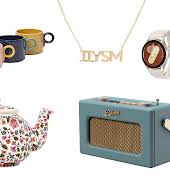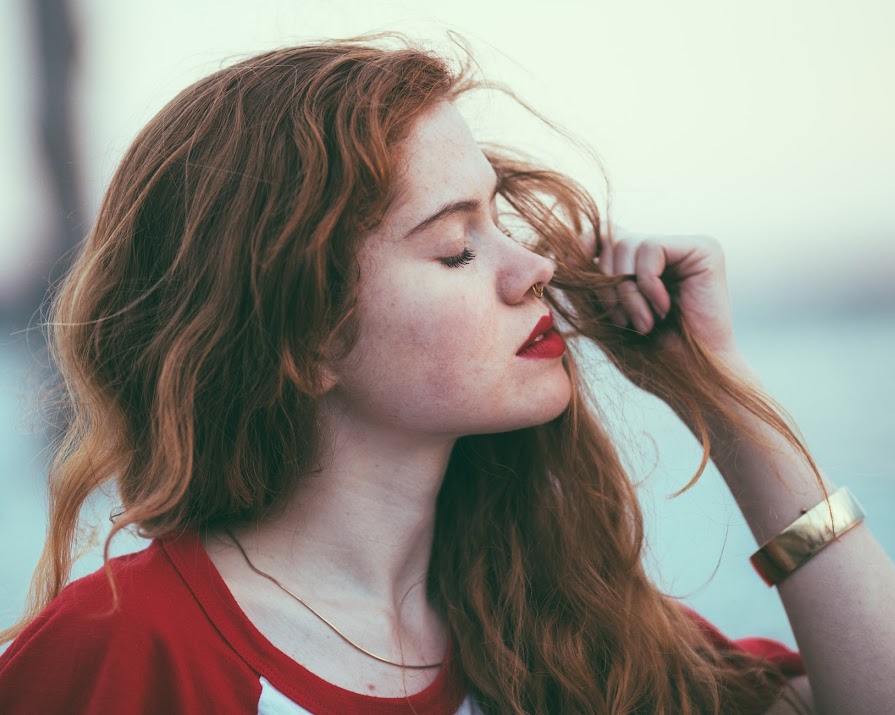By Sophie White
18th Oct 2017
18th Oct 2017
Last week, as influencers and bloggers took to their various social media channels to highlight the fact that it was World Mental Health Day, I despaired of yet another post extolling the virtues of ‘going for a walk’ and ‘taking a moment to be grateful’.
One wise influencer, Sarah Hanrahan of I Come Undone whose background is in psychiatric nursing made an interesting point on her Instagram account. In her post she critiqued the way some people with a platform chose to engage with the day.
“I usually steer clear of talking about mental health online despite my background as a psychiatric nurse,” she wrote. “I see bloggers throwing around so many mistruths about depression and anxiety not realising how damaging it can be when things they say worked for them then don’t work for their vulnerable readers, potentially making that reader feel even more hopeless for ‘failing’ when ‘putting on lipstick and going out with the girls’ didn’t work to cure their anxiety.”
Of course raising awareness around mental health issues is absolutely vital but for a huge number of people suffering, lifestyle measures are simply not an option in effectively managing their illness and in many ways the current style of discourse that promotes healthy eating and mindfulness, might alienate people who have graver chronic conditions that require more serious interventions.
One such person is Michelle who has suffered from depression and anxiety since her early 20s.
“I find all of the messaging that’s going on at the minute really alienating because it’s like every story is ‘I was going through a tough time and I had a bad patch and sometimes I want to say “Wait ’till you see what the next 10 to 15 years are going to be like!”
Michelle feels that her ‘brand’ of illness is somewhat sidelined in the conversation about mental health.
“I feel like all the supportive messaging and the ‘you’re so brave and ‘you’re so brilliant’ is very squarely focused at that type of mentally ill person who ‘got better’. And the likes of me are still looked down on. Because they are not pulling themselves up by the bootstraps… I have to maintain my illness daily and yet I’m extremely high functioning, but there are people who literally can’t work because of their mental illness, because they’re too depressed and they might never be able to work. Staying alive might be as good as it’s going to be for them, staying alive and having relationships with people. And even that is difficult.”
“And it’s really important to talk about it at all, it’s better than where we were before which was to not speak about it but in a lot of ways… I feel it’s a bit lipservicy.”
Michelle feels there is little in the debate for people who are not simply having a ‘bad patch’, the awareness is focused so much on minding our mental health with diet and exercise, that the reality for people who may never get ‘better’ as such, is being glossed over by the far more palatable image mental wellbeing through living ‘clean’ and working out.
“All of the messaging that we have, even the likes of Bressie and all that jazz, I just find it so alienating because it’s not the reality for me. And I’m not that badly off so I can only imagine how alienating it is for somebody who suffers really badly.”
Michelle’s first big breakdown hit just before finals in college more than ten years ago.
“I was in bed for months until my friends and my boyfriend said you need to see someone. I had three panic attacks on the way. They literally had to drag me kicking and screaming. I was hysterical.”
Her friends brought her to the chaplain of UCD who said “just do your exams, we’ll get you to a doctor, we’ll get you letters, whatever you need.”
Michelle managed to do her exams and passed all but one, meaning she never got her degree after being a self-described ‘goody two shoes’ in school and working hard at university.
She saw the GP in the aftermath, was prescribed a round of anti-depressants and moved back to her family home for several months to recuperate before returning to Dublin to take up her first job as editor of the college newspaper – a prestigious achievement she had secured before her breakdown.
“I was like ‘it was just a blip’, I got on with life but every now and then I’d find myself getting low. Suddenly I’d be in the depths of despair, I am not a very introspective person unless I have to be so it would take someone else to say ‘you’re not okay’.”
Perhaps not introspective but Michelle is certainly funny and whip smart. She’s a high achiever who clearly finds her illness frustrating, especially when it interferes with the extremely demanding work and hectic social life that she so clearly enjoys.
“I’ve had to take time off work before and anybody I’m close with in work would know that it’s because I’m having a bad day. And I can see it in their eyes, ‘How are you sick, you seem in good form?’ because I’d have been on Instagram. It’s hard for people to understand.”
Depression in particular is so insidious as there is so little external manifestation of the illness.
“It’s very hard explaining the overwhelming feeling of fatigue and malaise and emptiness if they’ve never felt it,” says Michelle. “Depression is so much more the absence of anything than the outward symptoms. You’re just blank. I have nothing. I have no personality. I’m just empty and it’s completely smothering and all encompassing.”
“When I am down down, one of my very pervasive thoughts is ‘it’d just be easier if I wasn’t here, it’d solve a lot of my problems right now to just not be alive’”.
“The scariest thing about that thought is that at the time it’s such a benign thought, it’s just passing. I don’t think I would ever do that but I’ve definitely had ‘let’s not be here anymore’ thoughts, and I’ve definitely had ‘maybe if I threw myself down the stairs I can get a few week’s rest’ thoughts. And it’s funny, because what you’re thinking is: ‘I wish I could be sick or injured so that I could have a reprieve’ but you’re already sick,” Michelle is very witty with a laconic turn of phrase which makes the fact that what she is talking about here are suicidal thoughts even more shocking.
Coming to terms with the fact that her condition is unlikely to ever “go away” has helped Michelle to learn how to manage the illness to some extent.
“I’ve accepted that I probably need to staying on medication for the rest of my life, that’s not a problem for me. I’m lucky to have found medication that works for me, that’s a problem a lot of people have. I think because I’ve accepted it, I think I will be able to avoid the really really dark places that I’ve been to before. I will have hard times and I will struggle but I hope that I will be able to prevent the big burnouts I’ve had in the past. I can see it coming more and I’m much better at taking care of myself than I was before.”
And what does taking care of herself entail?
“I’m gonna sound like one of these dickheads now but it is the stuff that they say!” she laughs. “You have to eat properly, you have got get eight hours sleep a night, exercise really helps and all that bullsh*t, cliché stuff. But there’s so much work that goes into getting you to a point where you can maintain and that’s what’s being completely overlooked.”























